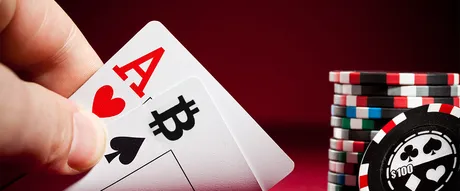
It has come to my attention that...
I would venture a guess and claim that most people in crypto think the issuers of Bitcoin spot ETFs are going to make money in exactly the same way that an exchange makes money: volume. The exchange charges a small fee on a percentage basis and that fee goes to the exchange. This number can range anywhere between 0.1% (Binance) and 0.6% (Coinbase taker). Smaller exchanges have to take even more because of low volume (think something like V4V trading into the Lightning Network or bridging to an EVM chain).
https://www.schwab.com/learn/story/etfs-how-much-do-they-really-cost https://www.schwab.com/etfs/costs-fees
- Commissions
- Operating Expense Ratio (OER)
- Bid/Ask spread
But ETFs don't actually work like that at all.
Because Exchange Traded Funds have been around long before the internet, used to be you'd have to call someone... on a landline... to make the trade. Even in these cases the "Commission" rate is a flat fee; something like $10 per trade. Doesn't matter if you buy $1k, $10k, or $100k worth of ETF, the commissions for all three would be $10 regardless of principal amount.
These days commissions don't even exist in many places because users are no longer talking to a real person, and instead opting to trade online. Apparently one can trade online for free. Pretty sweet deal, but how does the house make their money?

Operating Expense Ratio (OER)
Apparently this is the only way institutions like Blackrock can generate any income on an ETF. Rather than paying a fee during trade time the user instead pays a percentage fee based on the time that they held the asset. Perhaps something like 0.25% per year.
So lets say we bought into a gold ETF for $40,000. The fee on this position would be $100 per year instead of a one time trading fee like crypto exchanges. It's easy to see from this type of business model that when an asset like gold trades flat one will still lose a tiny bit of money if they're sitting in an ETF, whereas crypto in cold-storage doesn't suffer this kind of setback.

This model ends up being somewhat like poker:
Where the house rakes a predetermined amount from the market participants, and will end up raking more if there is more money sitting in the pot. The reason why this is so significant is that it becomes obvious why players like Blackrock, Grayscale, and Fidelity now need to shill BTC as hard as possible to their clients: the more money in the ETF the more money they make. Many consumers of the ETF will simply be buying and holding with a retirement fund, and have no reason to move the asset around. Thus, capitalizing on the first wave is key.
If they can scalp users who would have otherwise used a different service that's just more money for them. This is a big distinction between how an exchange operates because an exchange only cares about volume. In fact, user funds sitting on an exchange are a liability to the exchange. If the exchange gets hacked or misappropriates the funds they still legally owe those funds back to the user, which is how big exchanges tend to fail the vast majority of the time (FTX/GOX). A legitimate exchange would be more than happy to never hold user funds and simply rake in profit off the trading fees if such a thing was a viable strategy.
However, for an EFT provider like Blackrock, the money sitting in the vault is literally their only asset. The only way they can make money is to have a huge vault, so we must assume that when EFTs get approved they will all be clamoring over one another trying to corner the market. It's going to be quite the sight to behold, and we already got a taste of that with Larry Fink coming forward and declaring crypto pumps a "flight to quality". Certainly this is not a phrase many, including myself, expected to hear, but it makes perfect sense when the ETF business model is taken into account.
Collateralized Loans
One of the coolest things about crypto (and ETH in particular) is that one can borrow against their assets without ever having to sell those assets. As long as the collateral has a high enough value to justify the loan, the collateral will never be liquidated to pay the loan. I don't know how difficult it will be to get something like this approved as it relates to an ETF, but I have to assume that anyone who does would greatly set themselves apart from the rest of the crowd.
Bid/Ask spread + slippage
As a final thought the spread is also a hidden fee that needs to be considered. Many in crypto are intimately familiar with this mechanic due to low-liquid orderbooks. There's always a gap between buyers and sellers on the market. Even in a highly liquid pairing like Bitcoin/USD might have a $1 spread between buyers and sellers. You might be able to buy at $34000, but even if the price doesn't move you can only sell at $33999. This is known as the spread. However, the only entities that can possibly profit from the spread are liquidity provider bots making hundreds of trades a second.
Another way to lose money is if we buy so much of the asset that the price actually moves. On centralized exchanges this is called "slippage". On decentralized exchanges it is also called slippage, but liquidity providers also like to wrongfully call it "impermanent loss" when it is really more of a DCA type deal at the core.
Conclusion
We are very close to having an ETF approved, and whether that's a good or a bad thing matters very little: it is happening one way or another. It's important to understand that the core model for generating wealth as the house is completely different for an ETF than a centralized exchange.
This model, combined with the type of money being used to make the market (retirement accounts, hedge fund money, etc) clearly point to the fact that a lot of the money that enters the ETF will be held for very long periods of time and not move around much. The only thing we can do to combat such a "money attack" (if we can call it that) is to simply accumulate as much as we can now and frontrun the market. Buy the rumor.
Return from The Blackrock ETF Rake to edicted's Web3 Blog
